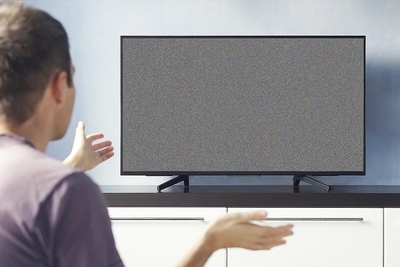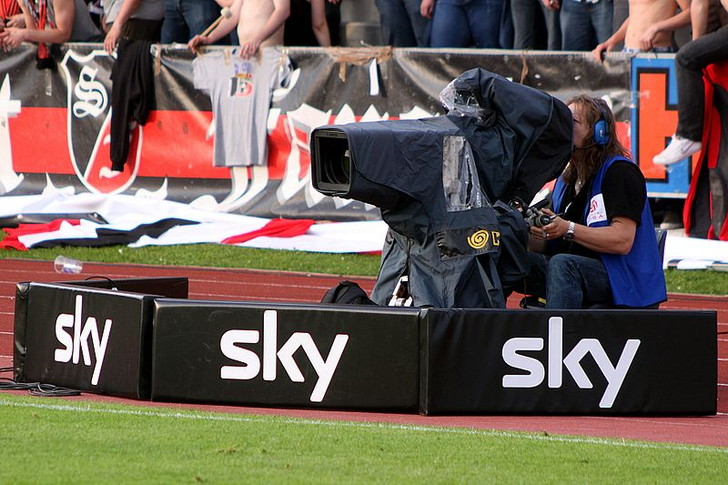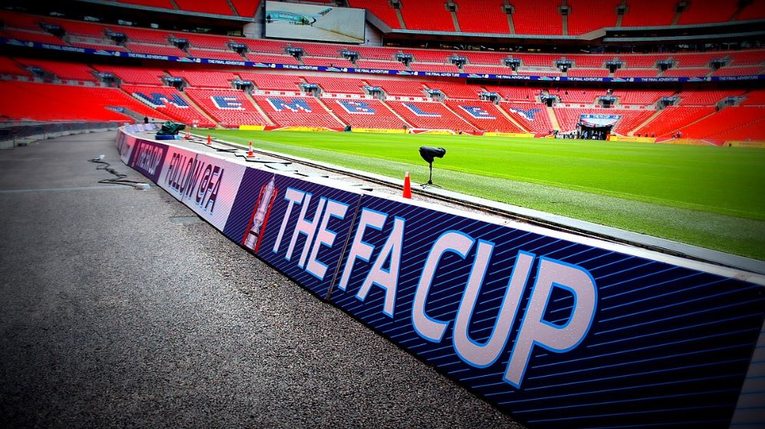Saturday at 3pm has long been the traditional kick-off time for football in England, but you can’t watch games live on the television at that time in the UK.
Why not? Is there a sensible reason for it? Or is it all about an arbitrary decision made years ago by greedy footballing executives?
You can probably guess the answer…
The History
 To understand why matches that are on between 2.45pm and 5.15pm on a Saturday afternoon aren’t allowed to be shown live on the television you have to understand the mentality of football in the 1960s. Despite its invention in its best-known form in the 1920s, the strange square device that sat in the corner of the room and beamed moving images into homes around the country was still in its infancy during the decade of The Beatles, The Rolling Stones and free love.
To understand why matches that are on between 2.45pm and 5.15pm on a Saturday afternoon aren’t allowed to be shown live on the television you have to understand the mentality of football in the 1960s. Despite its invention in its best-known form in the 1920s, the strange square device that sat in the corner of the room and beamed moving images into homes around the country was still in its infancy during the decade of The Beatles, The Rolling Stones and free love.
The new device was feared by the powers that be in most forms of entertainment, from theatre managers through to cinema owners, and football chairmen were no exception. Bob Lord, then the chairman of Burnley Football Club, believed that allowing the broadcast of football at its most popular time would be detrimental to attendances at live games, harming the clubs irreparably in the long run. In fact, Lord was such a hater of the very idea of televised matches that he banned the BBC’s Match Of The Day cameras from Burnley’s ground, Turf Moor, when the programme first launched. The ban remained in place for five years before people realised it was stupid.
Not content with spoiling Kenneth Wolstenholme’s fun as the first presenter of the BBC’s flagship football programme, Lord gathered together the rest of the chairman from the Football League and persuaded them all to agree to his suggestion that football should not be televised between 2.45pm and 5.15pm. If you ever wonder why you’ve got to travel from Newcastle to Southampton for a 12.45pm kick-off at any point in the future then it all dates back to the moment that the other chairmen agreed with his idea.
No legal ruling was ever put in place regarding the decision, but the footballing blackout was put in place and the Football Association, the Premier League and the Football League have continued to abide by it ever since. That games can be shown at 12.45pm and 5.15pm on a Saturday or pretty much any time the leagues and broadcasters like on a Friday, Sunday and Monday as well as midweek shows that the very notion of a blackout encouraging attendance is a nonsense.
Opposition To The Ruling

Not everyone agrees with the continued use of the blackout period, as the tone of this article might lead you to believe. Advocate General Juliane Kokott from the European Court of Justice, for example, said in February of 2011 that such ‘closed periods’ made little difference to the attendance at football grounds. She said, “It is, in fact, doubtful whether closed periods are capable of encouraging attendance at matches and participation in matches. Both activities have a completely different quality to the following of a live transmission on television”.
That notion is backed up by the situation in Germany where there are no such restrictions and pretty much every match of the Bundesliga is broadcast in its entirety. There has not been an issue with attendances at Bundesliga games because of this. Coincidentally, most German clubs have season tickets that cost less than going to see just one game costs at most Premier League grounds, but never let it be suggested that English clubs don’t want to drop the cost of their ticket prices in order to attract a crowd.
The majority of football fans see the ruling regarding football on Saturdays as Draconian, with the match going fan confused as to how football clubs could possibly think that watching a game on the television would be a suitable replacement for the visceral experience of watching a game live and in person. Meanwhile people who don’t physically go to matches are still watching the 3pm Saturday games, but instead of doing so through legal means they are having to take to the murky backwaters of the internet in order to find very much illegal streams that may not be reliable but will at least give you a chance of seeing your team play.
Further Complications

The FA Cup has always been the only exception to the Saturday blackout rule, with the Football Association’s chief competition traditionally shown live at 3pm on a Saturday afternoon after a day’s build-up. Even this has changed in recent times, however, though not because of the imposed period of no football on television. Rather that match’s kick-off time has been moved back and forth in order to try to attract an even bigger audience as the Premier League now enjoys global appeal.
That global appeal also makes the lack of live football between 2.45pm and 5.15pm in England even more complex. The ban only applies to English broadcasters, meaning that viewers in places like America, the Middle East and even Ireland can watch the games without compunction. Of course where they are it isn’t 3pm, so the rules on the timing wouldn’t count anyway.
Football from abroad is also popular in England, of course, with big matches in the likes of La Liga, Ligue 1 and the Bundesliga often attracting huge audiences in the UK. This is in itself occasionally problematic, as fans of Real Madrid and Barcelona have found out on numerous occasions. The match between the two teams, commonly known as El Classico, often kicks-off at a time that will attract the highest number of Spanish viewers to the game. In the UK this often turns out to be 5pm on a Saturday afternoon.
When Gareth Bale made his El Classico debut in October 2013 viewers missed the first fifteen minutes of the game as Sky couldn’t show the match until 5.15pm had ticked around the clock. Similarly Luis Suarez’s first appearance in the fiercely competed match between Barca and Los Blancos was not shown until after a third of the first half had already passed.
